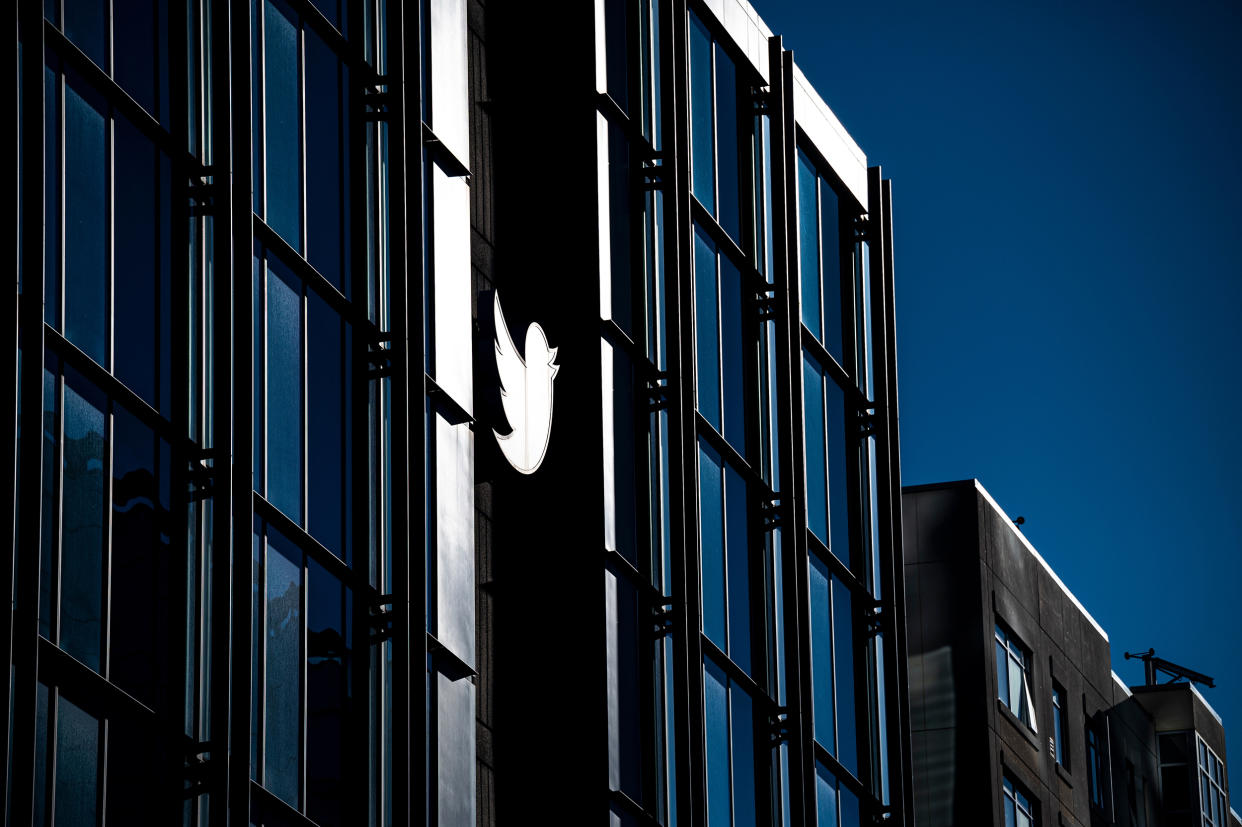Some of Twitter's top users aren’t afraid of losing their blue check marks

On April Fool’s Day, Twitter says it will get rid of verification badges for nonpaying users, but it doesn’t seem like a joke.
Journalists, celebrities and other public figures who have not paid for their badge may see the blue check on their accounts disappear after Saturday, but some verified users with large accounts on the platform say they’re not worried about losing their status — nor are they planning to leave the site once their badge vanishes.
“I really don’t think anything will change because I’ll still use Twitter the same way,” said Meecham Whitson Meriweather, who goes by @MediumSizeMeech on the platform and tweets about pop culture to his more than 48,000 followers. “I think the de-verification will go extremely smoothly. It might be chaotic for the first week, maybe, but otherwise, I think it’ll be fine.”
losing my blue check tomorrow to join the huddled masses pic.twitter.com/B2qqTno4zC
— David Mack (@davidmackau) March 31, 2023
After billionaire Elon Musk purchased Twitter in October and made deep staffing cuts, the site has experienced glitches and, in some instances, chaotic rollouts, such as the Twitter Blue program. Twitter Blue is the paid $8 monthly premium subscription now being offered by the platform, which gives users a blue verification badge and other features, like the possibility of editing a post. Organizations will be able to pay $1,000 per month for verification badges.
Verification on Twitter was previously provided by the platform at no cost to accounts they deemed noteworthy. When paid verification was first launched last year, the service was temporarily paused after users began impersonating big-name celebrities, politicians and brands.
With the sunsetting of "legacy" verification badges scheduled for Saturday, some have wondered if the site would fall into disarray once more. Many memed the moment, lamenting (jokingly) that they would soon join the ranks of Twitter’s “normies.”
Soon I will lose my blue tick and the last vestige of respectability on these cursed shores
— Callum 🔜 Reboot (@DevRelCallum) March 31, 2023
“Loved getting my blue check to lord it over all my friends and I can’t wait to lose it,” one person tweeted.
Another wrote: “Soon I will lose my blue tick and the last vestige of respectability on these cursed shores.”
Still, some verified users told NBC News that they don’t expect this change to derail the platform entirely or cause an exodus.
“Like we’ve seen with Elon, it’ll probably be just a lot of confusion If this does even happen. This might not even happen,” said Philip Lewis, a senior editor at HuffPo with more than 316,000 followers who goes by @Phil_Lewis_.
On Thursday, The New York Times reported that the platform will make an exception for some of its largest organizations and advertisers, which would be allowed to retain legacy verification badges. The 10,000 most-followed organizations and the site’s top 500 advertisers would keep their badges at no cost, the Times reported. Otherwise, organizations outside of the top 10,000 will be expected to pay $1,000 per month to stay verified.
Molly Jong-Fast, who tweets about current events and politics to her more than 1 million followers and goes by @MollyJongFast, called the idea of paying a platform for verification “perverse.” She hypothesized that the motivation behind removing the badge is not to quell bots on the platform, as Musk previously claimed, but rather to improve Twitter’s profit margin.
“The idea here now is that if you want the privilege of appearing or being able to interface with a site that was built on free content, from writers and artists, you need to pay the technology company,” Jong-Fast said. “These are the best of the brightest, and they still can’t figure out how, you know, to make a media company work, which I think is pretty interesting.”
Some on Twitter have already experienced de-verification — either because they created new accounts or violated Twitter’s community guidelines — have continued using the platform on unverified accounts. Podcaster Ira Madison III, who was previously suspended from Twitter and now tweets on an unverified account, joked about the onslaught of users who were mourning the soon-to-be loss of their verified badges.
“Not these eulogies for your blue check…” he tweeted.
Not these eulogies for your blue check…
— Ira (@iramadisonthree) March 31, 2023
Those who spoke with NBC News were divided on whether they would consider paying for their verification badge.
“I will not be buying Twitter Blue,” Rex Chapman, who tweets about pop culture and current events to his more than 1.2 million followers and goes by @RexChapman, wrote in a direct message to NBC News.
Lewis, however, said he would consider paying to ensure his work continues to reach a wide audience. On Twitter, those who have already subscribed to Twitter Blue are frequently teased for paying for what some deem a status symbol. Lewis said he, personally, doesn’t think it’s something to be ashamed of.
Meriweather said he thinks verified badges have already lost some of their cachet by rolling out paid verification.
“It sounds so funny and elitist saying this, but when anyone can get this signifier, it really loses its value,” he said.
Meriweather said he’s not concerned about impersonators when he loses his blue check mark. He believes his followers know there’s only one person with his voice and sense of humor. For now, he’s sticking with Twitter no matter how chaotic the site becomes.
“I will be going down with the ship,” he said.
This article was originally published on NBCNews.com

